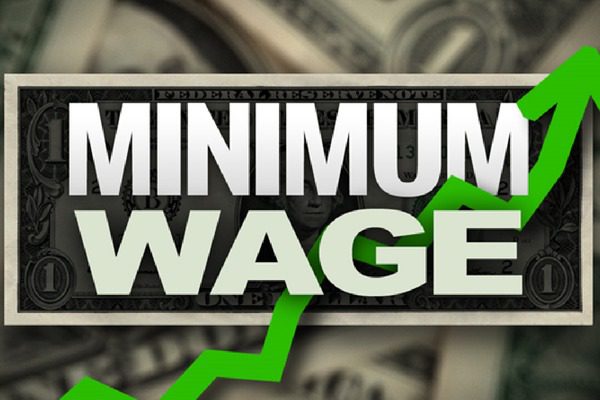On Thursday, August 28, 2025, the Ebonyi State Government announced a significant upward review of the minimum wage for its civil servants, increasing it from N70,000 to N90,000, effective immediately. The decision, disclosed by the Commissioner for Information and Orientation, Chief Ikeuwa Omebe, following a State Executive Council meeting, applies to all categories of state workers and reflects the administration’s dedication to prioritizing workforce welfare. In addition to the wage hike, the government has cleared outstanding pension and gratuity arrears for state retirees dating back to Ebonyi’s creation in 1996, demonstrating a commitment to addressing long-standing financial obligations. The council also approved the enforcement of an eight-year tenure policy for directors, mandating the immediate retirement of those who have exceeded the stipulated period in their roles. These measures, aligned with Governor Francis Nwifuru’s “People’s Charter of Needs” mantra, underscore Ebonyi’s focus on human capacity development and infrastructure improvement. This article provides a comprehensive analysis of the announcement, its context within Ebonyi’s socio-economic landscape, the implications for workers and retirees, and the broader significance for governance in Nigeria.
The Minimum Wage Increase: Details and Implementation
The Ebonyi State Executive Council’s decision to raise the minimum wage from N70,000 to N90,000 marks a significant step in enhancing the financial well-being of the state’s civil servants. According to Chief Ikeuwa Omebe, the new wage structure, effective immediately, applies to all categories of workers, from junior staff to senior officials, ensuring broad coverage across the state’s public sector. The increase, which represents a 28.6% rise, is intended to improve living standards for workers in a state where economic challenges, including inflation and rising costs, have strained household budgets.
Omebe emphasized that the wage hike is part of Governor Francis Nwifuru’s broader commitment to prioritizing the welfare of Ebonyi’s workforce. “This decision reflects the administration’s dedication to ensuring that our workers are well-remunerated and motivated to deliver quality services,” he said. The immediate implementation of the new wage underscores the government’s urgency in addressing workers’ needs, particularly in the face of Nigeria’s economic realities, where inflation rates have exceeded 30% in 2025, according to the National Bureau of Statistics.
The wage increase aligns with national efforts to improve workers’ compensation, following the Federal Government’s approval of a N70,000 minimum wage in July 2024. Ebonyi’s decision to exceed this benchmark demonstrates a proactive approach, positioning the state as a leader in prioritizing public sector welfare. The move is expected to benefit thousands of civil servants, including teachers, healthcare workers, and administrative staff, who form the backbone of Ebonyi’s public services.
Clearing Pension and Gratuity Arrears: A Historic Achievement
In addition to the wage hike, the Ebonyi State Government announced the clearance of outstanding pension and gratuity arrears for state retirees, some dating back to the state’s creation in 1996. This landmark achievement addresses a long-standing issue that has caused hardship for retirees, many of whom have struggled to access their entitlements for decades. Omebe described the clearance as evidence of the administration’s commitment to workers’ welfare, noting that it was not politically motivated but driven by a genuine desire to improve lives.
The clearance of pension arrears is particularly significant in Ebonyi, a state with a history of financial constraints due to its relatively low revenue base compared to oil-producing states like Delta or Rivers. Since its creation from parts of Enugu and Abia states in 1996, Ebonyi has faced challenges in meeting pension obligations, with retirees often staging protests to demand payments. The resolution of these arrears, some spanning nearly three decades, represents a major milestone in addressing historical grievances and restoring trust in governance.
Omebe also revealed that a verification exercise for retirees at the local government level is underway, aimed at ensuring accurate records and facilitating prompt payments. “Once the verification is complete, payments will be made to local government retirees, further demonstrating our commitment to fairness and transparency,” he said. This exercise is critical in a state with a significant rural population, where local government workers play a vital role in grassroots administration.
Enforcement of Tenure Policy: Promoting Efficiency and Renewal
The State Executive Council also deliberated on the enforcement of an eight-year tenure policy for directors, approving the immediate retirement of officials who have exceeded the stipulated period in their roles. This policy, designed to promote efficiency and career progression within the civil service, ensures that senior positions are not monopolized by a few, allowing younger and qualified officers to advance. Omebe noted that the move aligns with the administration’s goal of building a dynamic and responsive public sector.
The tenure policy addresses a common issue in Nigeria’s civil service, where prolonged occupancy of senior roles can stifle innovation and create bottlenecks in career advancement. By enforcing the eight-year limit, Ebonyi aims to inject fresh talent into its administrative framework, enhancing productivity and accountability. The immediate implementation of retirements reflects the government’s determination to act decisively, though it may face resistance from affected officials.
The “People’s Charter of Needs”: A Guiding Vision
Governor Francis Nwifuru’s administration, elected in 2023, has anchored its policies on the “People’s Charter of Needs,” a governance framework emphasizing human capacity development, infrastructure, and social welfare. The minimum wage increase, pension clearance, and tenure policy enforcement are all aligned with this vision, reflecting a holistic approach to addressing the needs of Ebonyi’s 3.2 million residents, as estimated in 2023.
Omebe highlighted the charter’s focus on building human capacity, noting that the wage hike and pension payments are designed to empower workers and retirees to contribute to the state’s development. Infrastructure projects, such as the ongoing rehabilitation of the Abakaliki-Enugu Road and the construction of rural health centers, complement these efforts, ensuring that economic benefits reach grassroots communities. The administration’s commitment to transparency, as evidenced by the retiree verification exercise, further underscores its dedication to accountable governance.
Context: Ebonyi’s Socio-Economic Landscape
Ebonyi State, located in Nigeria’s South-East geopolitical zone, is one of the country’s youngest states, created in 1996 to foster development in a region historically underserved. Known as the “Salt of the Nation” due to its salt deposits, Ebonyi has a predominantly agrarian economy, with agriculture employing over 70% of its workforce. The state is also rich in solid minerals, including limestone and lead, though these resources remain underexploited due to limited investment and infrastructure.
Despite its economic potential, Ebonyi faces significant challenges:
Economic Constraints:
Ebonyi’s internally generated revenue (IGR) is among the lowest in Nigeria, with the state relying heavily on federal allocations. In 2024, the state’s IGR was approximately N18 billion, compared to Lagos’s N1.2 trillion, highlighting the fiscal constraints that limit public spending.
The national economic crisis, marked by inflation and a weakening naira (N1,600/$1 in August 2025), has increased living costs, making the wage hike a critical intervention for civil servants.
Infrastructure Deficits:
Rural areas, which constitute the majority of Ebonyi’s landmass, suffer from poor roads, limited electricity, and inadequate healthcare facilities. The administration’s infrastructure projects aim to address these gaps, but progress has been slow due to funding challenges.
Pension and Gratuity Issues:
The backlog of pension arrears has been a persistent issue, with retirees often facing delays or partial payments. The clearance of these arrears is a significant step toward restoring dignity to retirees, many of whom rely on pensions as their primary income.
Unemployment and Youth Development:
With a youthful population, Ebonyi faces high unemployment rates, estimated at over 30%. Investments in human capacity, such as vocational training and entrepreneurship programs, are essential to harnessing this demographic dividend.
The minimum wage increase and pension clearance address these challenges directly, providing financial relief to workers and retirees while signaling the government’s commitment to inclusive development.
Public and Political Reactions
The announcement has elicited varied responses from Ebonyi residents, civil servants, and observers:
Civil Servants’ Support:
Workers across the state have welcomed the wage hike, viewing it as a lifeline amid economic hardship. Teachers and healthcare workers, in particular, have praised the immediate implementation, though some have called for clarity on payment schedules to ensure timely disbursements.
Retirees’ Relief:
Retirees have expressed gratitude for the clearance of pension arrears, with many describing it as a long-overdue recognition of their service. Community leaders in Abakaliki and Afikpo have urged the government to expedite the local government verification to extend benefits to more retirees.
Skepticism and Accountability Concerns:
On platforms like X, some residents have expressed skepticism, citing past instances where promised reforms failed to materialize. Calls for transparency in how the wage increase and pension payments are funded are widespread, with demands for regular updates on implementation.
Political Dynamics:
The announcement has bolstered Governor Nwifuru’s image as a people-oriented leader, particularly within the All Progressives Congress (APC). However, opposition parties, such as the Peoples Democratic Party (PDP), may use the opportunity to scrutinize the administration’s fiscal management, especially as the 2027 elections approach.
Implications for Ebonyi and Nigeria
The wage hike, pension clearance, and tenure policy enforcement have significant implications:
Worker Productivity:
The increased minimum wage is expected to boost morale and productivity among civil servants, who play a critical role in delivering public services. Improved compensation could also attract talent to Ebonyi’s public sector, addressing staffing shortages in key areas like education and healthcare.
Retiree Welfare:
Clearing pension arrears restores dignity to retirees and sets a precedent for other states grappling with similar issues. The local government verification exercise could further expand these benefits, enhancing social welfare.
Economic Impact:
The injection of funds through higher wages and pension payments could stimulate local economies, particularly in rural areas where civil servants and retirees spend their income. However, the state must manage the fiscal burden to avoid deficits.
Governance Model:
Ebonyi’s proactive measures position it as a model for other states, particularly in the South-East, where workers’ welfare has been a contentious issue. The emphasis on the “People’s Charter of Needs” could inspire similar people-centric policies nationwide.
Political Capital:
The announcement strengthens Nwifuru’s administration, enhancing its legitimacy and public support. However, sustained delivery on these promises is critical to maintaining trust.
Challenges and Opportunities
The initiatives present both challenges and opportunities:
Challenges:
Fiscal Sustainability: Funding the wage hike and pension payments requires careful financial management, given Ebonyi’s limited revenue. The state must explore innovative revenue sources, such as mineral development or public-private partnerships.
Implementation: Ensuring timely and transparent implementation is critical to maintaining public trust. Delays or mismanagement could undermine the initiatives’ impact.
Economic Pressures: The national economic crisis could limit the real value of the wage increase, requiring additional measures to support workers’ purchasing power.
Opportunities:
Economic Stimulus: Higher wages and pension payments could boost local economies, particularly in rural areas, fostering growth and development.
Human Capital: Investments in worker welfare and career progression can enhance public sector efficiency, positioning Ebonyi as a hub for talent and innovation.
Political Unity: The bipartisan appeal of these measures could foster unity across political divides, strengthening governance in Ebonyi.
Conclusion
The Ebonyi State Government’s decision to raise the minimum wage to N90,000, clear pension arrears, and enforce the eight-year tenure policy reflects a bold commitment to workers’ welfare and good governance. Announced on August 28, 2025, these measures align with Governor Francis Nwifuru’s “People’s Charter of Needs,” emphasizing human capacity development and inclusive growth. By addressing long-standing issues like pension arrears and promoting career progression, the administration is setting a precedent for people-centric governance in Nigeria.
As Ebonyi navigates economic challenges, the success of these initiatives will depend on transparent implementation and fiscal prudence. The wage hike and pension clearance offer immediate relief to workers and retirees, while the tenure policy fosters a dynamic public sector. For Ebonyi’s 3.2 million residents, these actions signal a government committed to their needs, with the potential to transform the state into a model of development and equity in Nigeria’s South-East.






